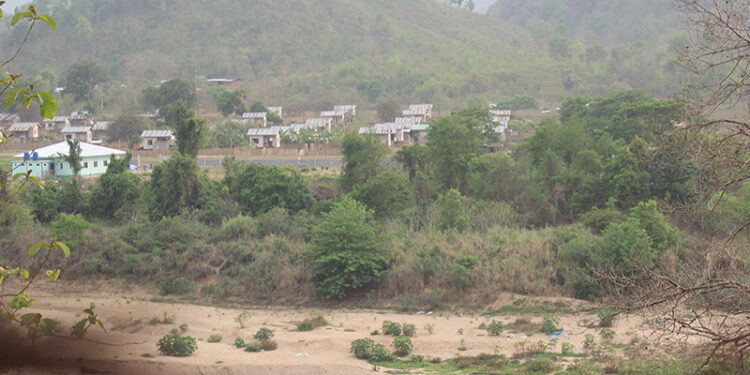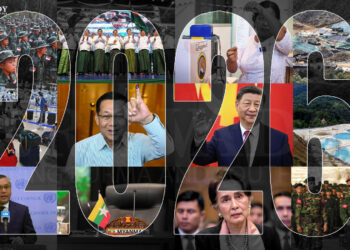BAN MAE SALIT, Thailand — Community workers are busy with meetings, travel, and workshops as Burma prepares for the repatriation of some 98,000 refugees living on the Thai-Burma border.
New houses for refugees and internally displaced persons (IDPs) are currently under construction in several locations controlled by the Karen National Union (KNU), Burma’s longest-running ethnic armed organization, which signed the nationwide ceasefire agreement (NCA) with the Burmese government.
About 50 new houses sit in a model village called Mae Salit, a project funded by foreign donors including the Nippon Foundation, a Japanese non-profit that closely follows Burma’s peace process.
Some IDPs and refugees have already returned to these model villages. Sources say about 1,000 homes will be built by the Nippon Foundation upon completion.
According to Karen News, an ethnic Karen media outlet, there are some 3,200 KNU refugees and family members that have so far returned to the Lay Kay Kaw model village in 2017.
With the cooperation of the Thai government and international non-governmental organizations (INGOs), some KNU leaders and the Burmese government began preparations for repatriation after the signing of the NCA in 2015.
One source in Mae Sot who is familiar with the matter told The Irrawaddy that INGO representatives briefed KNU leaders at the group’s recent congress and said funding for refugees on the border would end in about four years.
“They [INGOs] asked KNU leaders to be prepared to take responsibility for the refugees once the funding ends,” said the source, who asked for anonymity.
Other preparations are underway, with UN representatives from Rangoon visiting refugee communities to discuss repatriation plans and NGOs launching pilot projects to support IDPs and refugees who want to undertake agriculture and livestock projects.
“We are busy with meetings and visitors these days,” said Saw Honest, chairman of the Mae La refuge camp, referencing frequent visits from donors, NGOs, and others.
Saw Tu Tu, a leader of the Karen Refugee Committee (KRC), told The Irrawaddy that food assistance would soon be cut for refugees who live in Ei Htu Hta camp, an IDP camp in Karen State. Camps along the border are seeing reductions in donor money and aid since Burma’s shift toward democracy.
Quoting NGO sources, Saw Tu Tu said some 200 refugees households in Ei Htu Hta camp are preparing to return home when their assistance ends in August. Other households are still undecided, as many who were displaced by conflict still report feeling unsafe returning home while Burma Army troops are stationed in and near civilian areas.

















